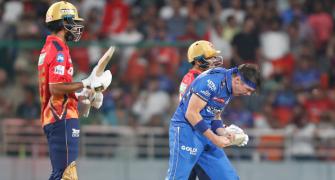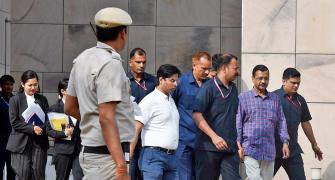Perhaps the best sign of a market's increasing efficiency is its difficulty to beat the law of averages. That is, when active investors struggle to outperform benchmark indices.
Not so long ago, the most actively-managed Indian funds did consistently beat the indices. There were two explanations offered and those were not completely mutually exclusive. One was that India was the classic immature, weakly-efficient market, where systematic analysis generated excess returns.
The other was that the lion's share of India's equity fund corpus was managed by UTI. Other AMCs controlled only a small proportion of the total corpus -- secondary market share was fragmented across many AMCs.
India was a reasonably efficient market by the late 1990s. But it wasn't efficient enough. Sophisticated investors could beat it. And the average investor pooled money into an unsophisticated AMC, which suffered huge amounts of interference.
Whatever were the reasons for the market inefficiency in the country, the scenario has changed now. UTI is now merely one of the several large players. Quite a few diversified equity schemes have maintained excellent track records in consistently outrunning indices.
But actively-managed money has started to underperform. In 2006, roughly one in seven diversified equity schemes beat its benchmark index. That's pretty much in line with the developed markets and it changes the odds in favour of passive investing.
Mavens, like John Bogle of Vanguard, made the argument for passive investment more than 30 years ago, and it goes in the following chain:
- Equity offers great long-term returns which are captured by market indices
- If you try to beat the market, you run the risk of underperformance.
- Why bother to even try? Just mimic the index and it will produce an average return that beats most other assets over the long-term. The acceptance of this logic has led to the growth of index funds all over the world. The Indian market appears to have matured and index funds in the country have seen plenty of action in the last two years.
The key to a successful index fund is minimal tracking error. It's a challenging task in itself. All index funds must rebalance regularly to mirror shifts in index weights; they must manage the brokerages out of their dividends.
In addition, any index fund will run out of money if it cannot be replenished through SIPs, etc. So, the good index funds are open-ended.
There maybe mass redemption pressure in an open fund in a May 2004/2006-type crash. That may exacerbate the correction in itself. Besides, an index fund will never be a traders' instrument as it is based on previous session's closing NAV.
An exchange-traded fund or ETF is, in many respects, an improved index-tracking instrument. ETFs offer real-time prices set synthetically at about a tenth of the underlying index. The ETFs don't face cash redemption pressures or rebalancing problems as much as other funds do.
These are created through barter. Index shares are pledged and in redemptions, the AMC returns the shares. Of course, ETFs are traded at normal delivery brokerage rates and they run into liquidity problems if sufficient shares are not pledged. But tracking errors are low and within the liquidity threshold, these are useful traders' instruments.
Benchmark is the pioneer AMC in offering ETFs -- it tracks the Nifty, the Nifty Junior and the Bank Nifty. Pru-ICICI's Spice tracks the Sensex and even UTI offers an ETF in Sundar. It's a key trading advantage that these are the best matches in paired trades of index futures.
An ETF is a pretty efficient 'underlying'. It's real-time and it has low track errors. It shines in comparison to the alternatives. An index fund is a very clumsy 'underlying'. It's also painful creating and maintaining an underlying of index stock-futures in odd proportions.







